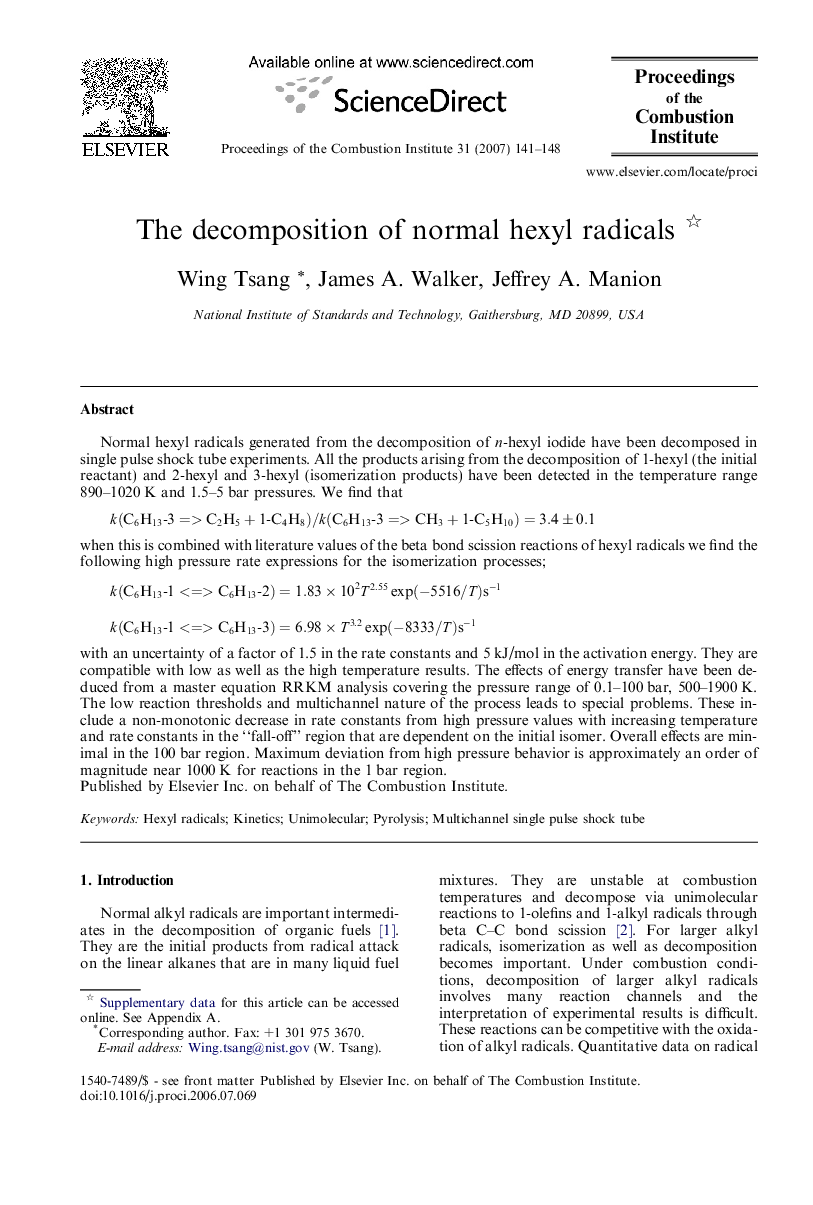| Article ID | Journal | Published Year | Pages | File Type |
|---|---|---|---|---|
| 240715 | Proceedings of the Combustion Institute | 2007 | 8 Pages |
Normal hexyl radicals generated from the decomposition of n-hexyl iodide have been decomposed in single pulse shock tube experiments. All the products arising from the decomposition of 1-hexyl (the initial reactant) and 2-hexyl and 3-hexyl (isomerization products) have been detected in the temperature range 890–1020 K and 1.5–5 bar pressures. We find thatk(C6H13-3=>C2H5+1-C4H8)/k(C6H13-3=>CH3+1-C5H10)=3.4±0.1when this is combined with literature values of the beta bond scission reactions of hexyl radicals we find the following high pressure rate expressions for the isomerization processes;k(C6H13-1<=>C6H13-2)=1.83×102T2.55exp(-5516/T)s-1k(C6H13-1<=>C6H13-3)=6.98×T3.2exp(-8333/T)s-1with an uncertainty of a factor of 1.5 in the rate constants and 5 kJ/mol in the activation energy. They are compatible with low as well as the high temperature results.The effects of energy transfer have been deduced from a master equation RRKM analysis covering the pressure range of 0.1–100 bar, 500–1900 K. The low reaction thresholds and multichannel nature of the process leads to special problems. These include a non-monotonic decrease in rate constants from high pressure values with increasing temperature and rate constants in the “fall-off” region that are dependent on the initial isomer. Overall effects are minimal in the 100 bar region. Maximum deviation from high pressure behavior is approximately an order of magnitude near 1000 K for reactions in the 1 bar region.
